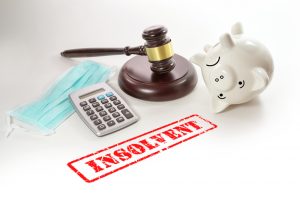Tens of thousands of new businesses launched in summer 2020 – despite the threat of recession and the economic slowdown sparked by the global Covid-19 pandemic.
While coronavirus has caused chaos for countless businesses, new entrepreneurs have seized the opportunity to start their own limited companies.
Many have been attracted by the demand for businesses that operate digitally and find it easier to get their product or service to customers in modern ways – quicker than ever before.
Government figures show an average of 2,372 new companies were registered every day in the spring between 4 April and 22 May 2020. That rocketed to 3,529 a day in July.
In fact, the number of incorporations at Companies House in the second quarter of 2020 increased by 6,139 (3.6%) compared with the same quarter of the previous year.
Suddenly, entrepreneurs are spotting opportunities to set up new limited companies to fill gaps in the market.
If you’re thinking of joining their number. Almost anyone can set up a limited company in the UK – but there are several factors that you should carefully consider before doing so.
Future Strategy are experts in helping with closing companies and identifying new opportunities, so if you need help, contacting us is an excellent place to start.
Here are a few things you’ll need to do when starting your own limited company:
1. A valid company name
Choosing a name for your limited company is extremely important, as is checking its availability.
The name must be unique and not contain any sensitive words or phrases.
Search the register at Companies House here to make sure someone else hasn’t taken the one you want.
It’s also worth checking that the domain name is available; several websites will help you perform this task, including https://www.checkdomain.net/en/.
Once you’ve done this, you can register your limited company with Companies House, choosing an official address and SIC code.
The latter identifies your company’s nature of business.
You can register your limited company via the Companies House website for £15. Alternatively, there are a number of incorporation websites.
2. An effective business plan
Planning may be tedious at the best of times. But put enough time into thinking about the steps you take to maximize your profit.
Even if you think your company doesn’t need a traditional ‘business plan,’ implementing one can be incredibly useful to help track how successful you’ve been at the end of any particular period.
It’s common to initially use personal or family and friend cash injections to start a company, but more capital may be needed in the future.
If this proves to be the case, banks or potential investors will require proof that your business is worth investing in or providing equity funding.
Establishing a business plan will be essential to attracting potential angel investors or financial organisations.
3. A business bank account
A limited company is considered a legal entity in its own right, so it must be kept separate from personal finances.
The most effective way to keep business finances segregated is to open a bank account.
To set up a business account, you will need to fill out an application and confirm who you are by providing proof of identification and address documents.
Many banks offer different rates and support, so search around for the best deals for your situation.
4. Someone to handle your accounts
The best way to reduce any time-consuming stress is to hire an accountant, especially keeping in mind that time is money.
Most limited companies will use an accountant, while sole traders will benefit from the service as it allows them to concentrate their energy on their business.
The date for filing your first accounts might seem like a long way off, but whether you are planning to do them yourself or hire an accountant, there are several records you will want to keep from day one, including:
- Business mileage
- Cashflow in cashbooks and petty cash books
- Invoices for goods and services sold
- Receipts for goods and services purchased (including claimed expenses)
5. Consider any legal requirements
Her Majesty’s Revenue and Customs (HMRC) provides a 10-digit Unique Tax Reference (UTR) to every incorporated company – you’ll need this number to file your company tax returns. If you have an accountant, they will organise this for you.
After you have started your limited company, you will need to send documents each year to Companies House, HMRC, and other Government bodies.
Failing to submit the required information on time is deemed an offence. If Companies House does not receive the relevant documents, the Registrar of Companies may assume the company is no longer in business and could remove it from the register altogether.
The two main ‘compliance requirements for UK companies are the confirmation statement (a snapshot of the company info including name, number, address, shareholders) and your annual accounts.
All limited companies must also submit to Companies House documents to change existing information.
If you are VAT registered, you need to send returns to HMRC at least every quarter. And if you employ people, you will be required to make monthly NI and PAYE contributions.
6. Tracking costs and revenue
It’s essential to maintain control of your incomings and outgoings from day one.
For example, did you know that you must register for VAT if your VAT taxable turnover goes over £85,000 (the ‘threshold’), or you know that it will? This is the total of everything sold that is not VAT exempt.
You also need to file a company tax return, which involves calculations about your business finances (including turnover, profits, and tax reliefs). You should keep accurate financial records from day one to make filing your company tax return as easy as possible.
Generally, the Government advises that you keep records for six years from the end of the last company financial year to which they relate.
Still, there are situations when you might need to keep them for longer, for example, if you purchase something that you expect to last for more than six years or if you were late filing your company tax return.
If you would like help starting a limited company, don’t hesitate to contact the Future Strategy team today.





